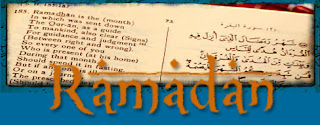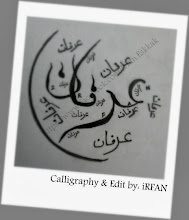 But among them is he who says, "Our Lord, give us in this world [that which is] good and in the Hereafter [that which is] good and protect us from the punishment of the Fire."
But among them is he who says, "Our Lord, give us in this world [that which is] good and in the Hereafter [that which is] good and protect us from the punishment of the Fire."
[Al-Quran 2:201]
Praise And Glory be to Allaah.
When the son of Adam dies and his soul departs and he is placed in his grave, then he is in the first stage of the Hereafter, because the grave is the first of the stages of the Hereafter.
It was narrated that Haani’ the freed slave of ‘Uthmaan ibn ‘Affaan said: when ‘Uthman ibn ‘Affaan stood by a grave he would weep until his beard became wet. It was said to him, “You remember Paradise and Hell and you do not weep, but you weep because of this?” He said, “The Messenger of Allaah (peace and blessings of Allaah be upon him) said: ‘The grave is the first of the stages of the Hereafter; whoever is saved from it, whatever comes afterwards will be easier for him, but if he is not saved from it, what comes afterwards will be worse for him.’” And the Messenger of Allaah (peace and blessings of Allaah be upon him) said: “I have never seen any scene but the grave is more frightening than it.”
(Narrated by al-Tirmidhi, 2308; Ibn Maajah, 4567; classed as hasan by al-Albaani in Saheeh al-Jaami’, 1684).
The two angels who are charged with questioning come to him and ask him what he used to believe in in this world, who was his Lord, what was his religion and who was his Prophet. If he gives a good answer, that is good, but if he does not answer them they inflict a severe and painful beating on him.
If he was one of the righteous, angels with white faces come to him, but if he was one of the evildoers, angels with dark faces come to him. This is the fitnah or tribulation that he suffers.
It was narrated from ‘Aa’ishah that the Prophet (peace and blessings of Allaah be upon him) used to say, ‘Allaahumma inni a’oodhu bika min al-kasali wa’l-haram wa’l-maghram wa’l-ma’tham. Allaahumma inni a’oodhu bika min ‘adhaab al-naar wa fitnat il-naar, wa fitnat il-qabri, wa ‘adhaab il-qabri, wa sharri fitnat il-ghina wa sharri fitnat il-faqair wa min sharri fitnat il-maseeh il-Dajjaal. Allaahumma ighsil khataayaaya bi ma’ al-thalji wa’l-baradi wa naqqi qalbi min al-khataaya kama yunaqqa al-thawb al-abyad min al-danas, wa baa’id bayni wa bayna khataayaaya kama baa’adta bayna al-mashriqi wa’l-maghrib (O Allah! I seek refuge with You from laziness and old age, and from debts and sins; from the torment of the Fire and from the tribulation of the Fire, and from the tribulation of the grave and the torment of the grave, and from the evil of the tribulation of wealth, and from the evil of the tribulation of poverty, and from the evil of the tribulation of the Dajjaal (Antichrist). O Allah! Wash away my sins with the water of snow and hail, and cleanse my heart from sin as a white garment is cleansed from filth, and put a great distance between me and my sins, as great as the distance You have made between the East and the West).”
(Narrated by al-Bukhaari, 6014).
Ibn Hajar said:
The phrase “from the tribulation of the grave” means the questioning of the two angels.
Fath al-Baari, 11/177.
And al-Mubaarakfoori said:
“The tribulation of the grave” means confusion when answering the two angels.
Tuhfat al-Ahwadhi, 9/328
It was narrated that al-Bara’ (may Allaah be pleased with him) said: We went out with the Messenger of Allaah (peace and blessings of Allaah be upon him) for the funeral of a man from among the Ansaar. We came to the grave and when (the deceased) was placed in the land, the Messenger of Allaah (peace and blessings of Allaah be upon him) sat down and we sat around him, as if there were birds on our heads (i.e., quiet and still). In his hand he had a stick with which he was scratching the ground. Then he raised his head and said, “Seek refuge with Allaah from the torment of the grave”, two or three times. Then he said, “When the believing slave is about to depart this world and enter the Hereafter, there come down to him from heaven angels with white faces like the sun, and they sit around him as far as the eye can see. They bring with them shrouds from Paradise and perfumes from Paradise. Then the Angel of Death comes and sits by his head, and he says, ‘O good soul, come forth to forgiveness from Allaah and His pleasure.’ Then it comes out easily like a drop of water from the the mouth of a waterskin.
When he seizes it, they do not leave it in his hand for an instant before they take it and put it in that shroud with that perfume, and there comes from it a fragrance like the finest musk on the face of the earth. Then they ascend and they do not pass by any group of angels but they say, ‘Who is this good soul?’ and they say, ‘It is So and so the son of So and so, calling him by the best names by which he was known in this world, until they reach the lowest heaven. They ask for it to be opened to them and it is opened, and (the soul) is welcomed and accompanied to the next heaven by those who are closest to Allaah, until they reach the seventh heaven. Then Allaah says: ‘Record the book of My slave in ‘Illiyoon in the seventh heaven, and return him to the earth, for from it I created them, to it I will return them and from it I will bring them forth once again.’ So his soul is returned to his body and there come to him two angels who make him sit up and they say to him, ‘Who is your Lord?’ He says, ‘Allaah.’ They say, ‘What is your religion?’ He says, ‘My religion is Islam.’ They say, ‘Who is this man who was sent among you?’ He says, ‘He is the Messenger of Allaah (peace and blessings of Allaah be upon him).’ They say, ‘What did you do?’ He says, ‘I read the Book of Allaah and I believed in it.’ Then a voice calls out from heaven, ‘My slave has spoken the truth, so prepare for him a bed from Paradise and clothe him from Paradise, and open for him a gate to Paradise.’ Then there comes to him some of its fragrance, and his grave is made wide, as far as he can see. Then there comes to him a man with a handsome face and handsome clothes, and a good fragrance, who says, ‘Receive the glad tidings that will bring you joy this day.’ He says, ‘Who are you? Your face is a face which brings glad tidings.’ He says, ‘I am your righteous deeds.’ He says, ‘O Lord, hasten the Hour so that I may return to my family and my wealth.’ But when the disbelieving slave is about to depart this world and enter the Hereafter, there come down to him from heaven angels with black faces, bringing sackcloth, and they sit around him as far as the eye can see. Then the Angel of Death comes and sits by his head, and he says, ‘O evil soul, come forth to the wrath of Allaah and His anger.’ Then his soul disperses inside his body, then comes out cutting the veins and nerves, like a skewer passing through wet wool. When he seizes it, they do not leave it in his hand for an instant before they take it and put it in that sackcloth, and there comes from it a stench like the foulest stench of a dead body on the face of the earth. Then they ascend and they do not pass by any group of angels but they say, ‘Who is this evil soul?’ and they say, ‘It is So and so the son of So and so, calling him by the worst names by which he was known in this world, until they reach the lowest heaven. They ask for it to be opened to them and it is not opened.” Then the Messenger of Allaah (peace and blessings of Allaah be upon him) recited (interpretation of the meaning):
“for them the gates of heaven will not be opened, and they will not enter Paradise until the camel goes through the eye of the needle”
[al-A’raaf 7:40]
He said: “Then Allaah says, ‘Record the book of My slave in Sijjeen in the lowest earth, and return him to the earth, for from it I created them, to it I will return them and from it I will bring them forth once again.’ So his soul is cast down.” Then the Messenger of Allaah (peace and blessings of Allaah be upon him) recited the verse (interpretation of the meaning):
“and whoever assigns partners to Allaah, it is as if he had fallen from the sky, and the birds had snatched him, or the wind had thrown him to a far off place”
[al-Hajj 22:31]
He said: “Then his soul is returned to his body, and there come to him two angels who make him sit up and they say to him, ‘Who is your Lord?’ He says, ‘Oh, oh, I don’t know.’ They say, ‘What is your religion?’ He says, ‘Oh, oh, I don’t know.’ Then a voice calls out from heaven, ‘Prepare for him a bed from Hell and clothe him from Hell, and open for him a gate to Hell.’ Then there comes to him some of its heat and hot winds, and his grave is constricted and compresses him until his ribs interlock. Then there comes to him a man with an ugly face and ugly clothes, and a foul stench, who says, ‘Receive the bad news, this is the day that you were promised.’ He says, ‘Who are you? Your face is a face which forebodes evil.’ He says, ‘I am your evil deeds.’ He says, ‘O Lord, do not let the Hour come, do not let the Hour come.’”
Narrated by Abu Dawood, 4753; Ahmad, 18063 – this version was narrated by him. Classed as saheeh by al-Albaani in Saheeh al-Jaami’, 1676.
The correct view is that the two angels will only question the deceased in his grave about matters of Tawheed (monotheism) and ‘aqeedah (belief). This is quite clear.
And Allah Almighty knows best...!












